Experts
Mia Brantley
Assistant Professor, Department of Sociology and Anthropology, North Carolina State University
News
- Leave Laws Support EquityA briefing paper prepared by Jeff Hayes, Women’s Bureau, U.S. Department of Labor[1], and H. Elizabeth Peters, Urban Institute, for the Council on Contemporary Families symposium The COVID-19 Pandemic and… Read more: Leave Laws Support Equity
- NEW FROM CCF! No More in the Shadows: Racism, Family Structure, and Black Families
 Family formation has long been touted as a source of racial inequality, but what does the research actually say?
Family formation has long been touted as a source of racial inequality, but what does the research actually say? - People are Not as Consistent in Their Social Ideologies as We Think: Changing Views on Gender and Race, 1977-2018
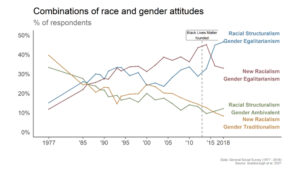 A new study finds that recognizing one type of inequality doesn’t automatically lead to recognition of another.
A new study finds that recognizing one type of inequality doesn’t automatically lead to recognition of another. - Staying Ready, Staying Vigilant, Staying Safe: Hyperarousal and Hypervigilance in African American Male Adolescents Exposed to Community Violence
 A new study explores how behaviors once seen as maladaptive may actually protect youth.
A new study explores how behaviors once seen as maladaptive may actually protect youth. - Parents Can’t Go It Alone–They Never Have: What to Do for Parents to Help Our Next Generation
 Parents Can’t Go It Alone introduces you to important new work about what parents need to meet their goals and successfully raise the next generation.
Parents Can’t Go It Alone introduces you to important new work about what parents need to meet their goals and successfully raise the next generation. - Household Instability and Complexity among Undocumented Immigrants
 February 6, 2019 A fact sheet prepared for the Council on Contemporary Families by Youngmin Yi, Ph.D. Candidate in Sociology, Cornell University. In the absence of clear pathways to citizenship,… Read more: Household Instability and Complexity among Undocumented Immigrants
February 6, 2019 A fact sheet prepared for the Council on Contemporary Families by Youngmin Yi, Ph.D. Candidate in Sociology, Cornell University. In the absence of clear pathways to citizenship,… Read more: Household Instability and Complexity among Undocumented Immigrants - Parenting Patterns, Racial Discrimination, and African American Adolescents’ Psychological and Academic Outcomes
 A Research Brief Prepared for the University of Texas at Austin Population Research Center Research Brief Series Fatima Varner, Yang Hou, Tajma Hodzic, Noelle M. Hurd, Sheretta T. Butler-Barnes, and Stephanie… Read more: Parenting Patterns, Racial Discrimination, and African American Adolescents’ Psychological and Academic Outcomes
A Research Brief Prepared for the University of Texas at Austin Population Research Center Research Brief Series Fatima Varner, Yang Hou, Tajma Hodzic, Noelle M. Hurd, Sheretta T. Butler-Barnes, and Stephanie… Read more: Parenting Patterns, Racial Discrimination, and African American Adolescents’ Psychological and Academic Outcomes - Black Deaths Matter: A Conceptual Framework for Understanding Racial Disparities in Relationship Loss and Health
 A Research Brief Prepared for the University of Texas at Austin Population Research Center Research Brief Series Debra Umberson Introduction Black Americans are more likely than white Americans to experience the… Read more: Black Deaths Matter: A Conceptual Framework for Understanding Racial Disparities in Relationship Loss and Health
A Research Brief Prepared for the University of Texas at Austin Population Research Center Research Brief Series Debra Umberson Introduction Black Americans are more likely than white Americans to experience the… Read more: Black Deaths Matter: A Conceptual Framework for Understanding Racial Disparities in Relationship Loss and Health - CCF ADVISORY: Debra Umberson reports on African-Americans’ much greater exposure to the early death of close family members
 AUSTIN, Texas — Black Americans are more likely than whites to experience the loss of a parent during childhood and to be exposed to multiple close family member deaths by… Read more: CCF ADVISORY: Debra Umberson reports on African-Americans’ much greater exposure to the early death of close family members
AUSTIN, Texas — Black Americans are more likely than whites to experience the loss of a parent during childhood and to be exposed to multiple close family member deaths by… Read more: CCF ADVISORY: Debra Umberson reports on African-Americans’ much greater exposure to the early death of close family members - Kristal Brent Zook, One of CCF’s Newest Board Members, Has a New Article in the Washington Post
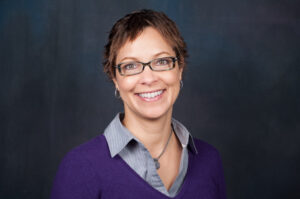 In Why the ‘ethnic’ aisle is merging with the ‘beauty’ one Kristal Brent Zook explains the significance behind the maintstreaming of the black hair care industry. Tweet
In Why the ‘ethnic’ aisle is merging with the ‘beauty’ one Kristal Brent Zook explains the significance behind the maintstreaming of the black hair care industry. Tweet - CCF Civil Rights Symposium: Women’s Changing Social Status since the Civil Rights Act
 Today the Council on Contemporary Families releases the third set of papers in a three part symposium marking the 50th anniversary of the Civil Rights Act. The first two sets of papers described changes in America’s religious and racial-ethnic landscape in the half century since it became illegal to discriminate on the basis of religion, skin color, national origin, race, ethnicity or gender.
Today the Council on Contemporary Families releases the third set of papers in a three part symposium marking the 50th anniversary of the Civil Rights Act. The first two sets of papers described changes in America’s religious and racial-ethnic landscape in the half century since it became illegal to discriminate on the basis of religion, skin color, national origin, race, ethnicity or gender. - CCF Civil Rights Symposium: Are African Americans Living the Dream 50 Years After Passage of the Civil Rights Act?
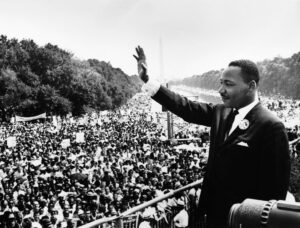 By Velma McBride Murry and Na Liu Vanderbilt University In 1963, Rev. Dr. Martin Luther King, Jr. made his famous “I Have a Dream” speech at the March on Washington,… Read more: CCF Civil Rights Symposium: Are African Americans Living the Dream 50 Years After Passage of the Civil Rights Act?
By Velma McBride Murry and Na Liu Vanderbilt University In 1963, Rev. Dr. Martin Luther King, Jr. made his famous “I Have a Dream” speech at the March on Washington,… Read more: CCF Civil Rights Symposium: Are African Americans Living the Dream 50 Years After Passage of the Civil Rights Act? - CCF Civil Rights Symposium: Racial-Ethnic Realities since the Civil Rights Act
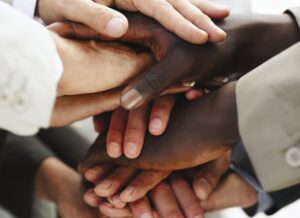 Overview: Changing Racial-Ethnic Realities since the Civil Rights Act Remarks by: Stephanie Coontz Today the Council on Contemporary Families releases the second set of papers in a three part symposium… Read more: CCF Civil Rights Symposium: Racial-Ethnic Realities since the Civil Rights Act
Overview: Changing Racial-Ethnic Realities since the Civil Rights Act Remarks by: Stephanie Coontz Today the Council on Contemporary Families releases the second set of papers in a three part symposium… Read more: CCF Civil Rights Symposium: Racial-Ethnic Realities since the Civil Rights Act - CCF Civil Rights Symposium: Changes in America’s Racial and Ethnic Composition Since 1964
 By Raha Forooz Sabet University of Miami When the Civil Rights Act was passed in 1964, racial differences in the United States were almost literally black and white. In the… Read more: CCF Civil Rights Symposium: Changes in America’s Racial and Ethnic Composition Since 1964
By Raha Forooz Sabet University of Miami When the Civil Rights Act was passed in 1964, racial differences in the United States were almost literally black and white. In the… Read more: CCF Civil Rights Symposium: Changes in America’s Racial and Ethnic Composition Since 1964 - CCF Civil Rights Symposium: The State of Latino Children
 By Rogelio Sáenz University of Texas at San Antonio Latinos are increasingly driving the demographic fortunes of the United States. Between 2000 and 2011, the number of white children in… Read more: CCF Civil Rights Symposium: The State of Latino Children
By Rogelio Sáenz University of Texas at San Antonio Latinos are increasingly driving the demographic fortunes of the United States. Between 2000 and 2011, the number of white children in… Read more: CCF Civil Rights Symposium: The State of Latino Children - Latinas’ MystiquesLatinas are often described as being either too devoted to their cultural values or not sufficiently connected to them. They are often told that they must choose “one of way of being,” either Latina or American. This expectation not only implies that there is an “authentic” Latina femininity and American femininity, but that their success depends on enacting the “right” femininity.
- The Unfeminine Mystique – Stereotypes about African-American WomenThe gendered mystique that still poses barriers to African-American women in their personal and public lives is perhaps best described as an “unfeminine mystique” – the idea that they have characteristics and embrace lifestyles that are outside the boundaries of “real” womanhood. This “unfeminine mystique” has plagued African-American women for more than 200 years.
- CCF Gender Revolution Symposium: Divergent Revolutions for Blacks, Latinos, and Whites
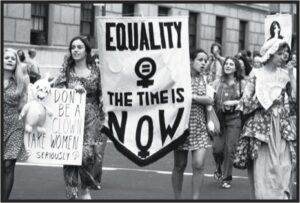 By Janelle Jones Labor Market Researcher, Center for Economic and Policy Research Phone: 202-293-5380 Email: jones@cepr.net As Cotter, Hermsen, and Vanneman argue, the extent of the gender revolution has been… Read more: CCF Gender Revolution Symposium: Divergent Revolutions for Blacks, Latinos, and Whites
By Janelle Jones Labor Market Researcher, Center for Economic and Policy Research Phone: 202-293-5380 Email: jones@cepr.net As Cotter, Hermsen, and Vanneman argue, the extent of the gender revolution has been… Read more: CCF Gender Revolution Symposium: Divergent Revolutions for Blacks, Latinos, and Whites - Beyond the Stereotypes: Hispanic/Latino Families
 Over the last 30 years the Latino/Hispanic population in the United States has grown seven times faster than the population of the nation as a whole. Hispanics currently represent almost 15 percent of the U.S. population and within the next two decades are expected to constitute a full quarter of Americans. Although often treated as a monolithic ethnic group, Latina/os differ in their racial and ethnic identities, religious beliefs, health status, socioeconomic status, and language patterns. Lumping ALL these groups under the rubric of “Latino” or “Hispanic” masks important demographic and socioeconomic differences and perpetuates negative stereotypes.
Over the last 30 years the Latino/Hispanic population in the United States has grown seven times faster than the population of the nation as a whole. Hispanics currently represent almost 15 percent of the U.S. population and within the next two decades are expected to constitute a full quarter of Americans. Although often treated as a monolithic ethnic group, Latina/os differ in their racial and ethnic identities, religious beliefs, health status, socioeconomic status, and language patterns. Lumping ALL these groups under the rubric of “Latino” or “Hispanic” masks important demographic and socioeconomic differences and perpetuates negative stereotypes. - Recent Changes In Fertility Rates In The United States: What Do They Tell Us About Americans’ Changing Families?
 Download Full Report as a PDF Download Full Report as a Word Document The number of births in the US increased by 3 percent in 2006, and has now reached… Read more: Recent Changes In Fertility Rates In The United States: What Do They Tell Us About Americans’ Changing Families?
Download Full Report as a PDF Download Full Report as a Word Document The number of births in the US increased by 3 percent in 2006, and has now reached… Read more: Recent Changes In Fertility Rates In The United States: What Do They Tell Us About Americans’ Changing Families?
